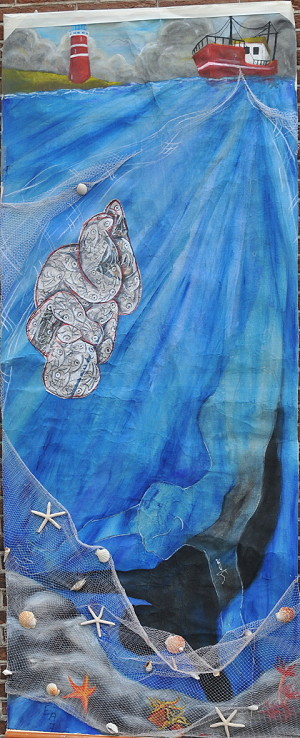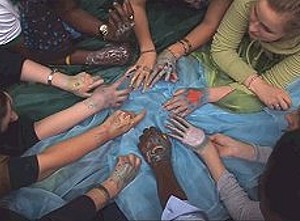International workshop, Brussels, 2-3 March 2012
H. Janne meeting room, 15th floor of the Sociology Institute of the Free University of Brussels (ULB), Solbosch Campus, Avenue Jeanne 44, 1050 Brussels.

We are living in times of change in the life-support system of our planet and in our societies. Within the lifetime of today's young people we need to accommodate up to an estimated 9 billion fellow-humans, compared to our current population of an estimated seven billion citizens, predominantly living in urban areas. We need to ask ourselves what type of education, knowledge and skills young people need to live peacefully and sustainably with one another.
This also begs the question how we may all want to revisit the way we live, exercise our respective professions and relate to nature, the seas, and to our global neighbours of all ages, beliefs, races and gender. The sciences produced assessments of the state of our ecosystems, the climate and the oceans, which are extremely worrying. They also give us a better handle on how we might cope drawing on the knowledge that is already available in the public domain, even create new opportunities for lifting more people out of poverty and live dignified lives.
But clearly, our ability to make our societies more equitable and able to cope through harnessing collective intelligence and capacity to act, does not only depend on scientific or technical knowledge.
It critically depends on interpreting and using such knowledge in a humanistic framework. It depends on honing social responsibilities and cooperative skills, which have been neglected in some of the 'Western' societies in recent decades. Rethinking education and sustainable living will also have to lead to the emergence of governance frameworks to enable much required cooperation from local to global levels, well beyond the practice within the UN system.
Against this backdrop, and taking into account research and exploratory practice in several scientific fields, in the arts and in education, the objective of the workshop is to reflect and co-create new insights about the need of accompanying young people into sustainable forms of shaping their adult lives. It is about how to enable alternative practices inside and outside formal educational situations. Such practices need to be based on robust pedagogical concepts centred on the whole person in the context of the local community and social group, yet also conscious of interdependence of other local and global developments.
This is to enable young people to meet their global peers on our crowded planet and to learn how to cooperate for better futures. The joint reflection adds to on-going efforts under the UNESCO Decade for Reorienting Teacher Education to Address Sustainability and other efforts.
To this effect, the workshop will bring together experienced professionals and practitioners with diverse backgrounds in education, the sciences and the arts to cross-fertilise their knowledge and experience.
It is also expected that some action lines will emerge from the conversations and cross-wiring that offer participants the opportunity to follow-up on the results. This could entail cooperation on specific projects after the workshop, some of which may be already ongoing by Mundus maris and/or driven by participants. We also offer the possibility to establish a community of practice for continued joint learning through the practice of participatory methods of teaching and living to help sustainable living to emerge.
 The workshop will be convened using participatory working methods and thus not be built primarily around presentation of research papers and a formal setting, though impulse presentations of selected speakers can have their place. The main thrust is focused on enabling a real conversation between participants around these issues allowing them to weave their combined expertise and experience into a better shared understanding.
The workshop will be convened using participatory working methods and thus not be built primarily around presentation of research papers and a formal setting, though impulse presentations of selected speakers can have their place. The main thrust is focused on enabling a real conversation between participants around these issues allowing them to weave their combined expertise and experience into a better shared understanding.
Participants are invited to prepare by bringing case material from their own experience about good practices in teaching and practicing acquisition and sharing of knowledge and social skills along the lines which may be useful or necessary in the future.
The workshop is organised by Mundus maris asbl in collaboration with SEDIF asbl in the context of the 2012 edition of Campus Plein Sud at the Free University of Brussels (ULB), coordinated by SEDIF / ULB.
You can find some background reflections about underlying approaches in aesthetic formation as developed in the context of the Mare Nostrum Project, particularly by Carla Zickfeld. Further material can be found in the presentations at the Mundus maris panel about rethinking (sustainable) development at the EADI conference in York, September 2011, titled 'Rethinking Development in an Age of Scarcity and Uncertainty'.
Interested in participation? Click here for the prospectus. Do you have questions? Want to contribute but can not participate yourself? Contact Julia Malaise at SEDIF.
Want to be in contact directly with Mundus maris? contact Esta dirección de correo electrónico está siendo protegida contra los robots de spam. Necesita tener JavaScript habilitado para poder verlo..








